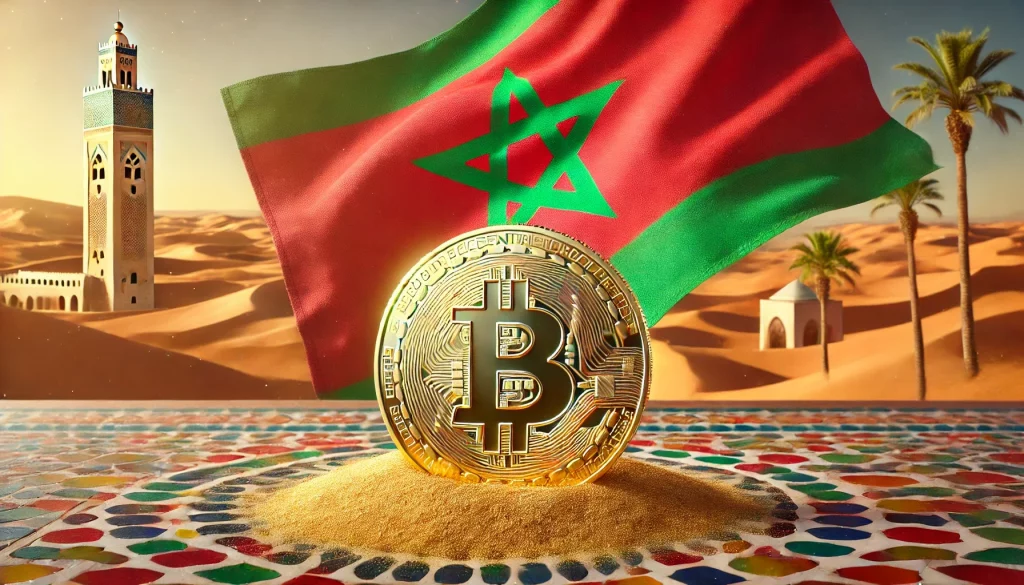
Morocco is preparing to officially legalize cryptocurrencies and is drafting a regulatory framework to facilitate their adoption, following a ban on digital currencies since 2017.
Key Points
- The Moroccan central bank, Bank Al-Maghrib, is actively working on a draft law to regulate crypto assets.
- Morocco is considering the introduction of a Central Bank Digital Currency (CBDC) to enhance financial inclusion.
- The 2017 ban on cryptocurrencies was due to concerns over risks such as money laundering.
Morocco’s Shift Towards Cryptocurrency Legalization
Abdellatif Jouhari, the governor of Bank Al-Maghrib (the Central Bank of Morocco), announced that the bank is preparing a draft law aimed at systematically adopting cryptocurrencies in the region. This draft is part of Morocco’s broader effort to establish a regulatory framework for digital assets.
In a recent address at an international conference in Rabat, Jouhari confirmed that the central bank has crafted a regulatory framework for crypto assets, which is in the process of being adopted. This initiative marks a significant departure from Morocco’s previous approach, which involved banning all cryptocurrency-related activities since 2017 due to concerns over their potential risks and the lack of regulatory oversight.
Regulatory Framework and Current Developments
The impending legislation aims to provide a clear and structured approach to cryptocurrency transactions and usage within Morocco. The awareness and acceptance of cryptocurrencies have grown significantly, prompting the government to reconsider its previous stance. The draft law under review is expected to facilitate the safe and regulated use of digital currencies, allowing for a more robust integration into the Moroccan economy.
This move towards legalization is also reflective of a broader global trend where various countries are establishing regulatory frameworks inspired by Europe’s Markets in Crypto-Assets (MiCA) regulations. Morocco’s pivot towards a more favorable regulatory environment for cryptocurrencies signifies its commitment to fostering innovation while ensuring that necessary safeguards are in place to protect consumers and the financial system.
Exploration of Central Bank Digital Currency (CBDC)
In addition to preparing for the legalization of cryptocurrencies, the governor expressed that Morocco is exploring the potential introduction of a central bank digital currency (CBDC). This aligns with efforts from numerous countries worldwide, which are assessing how CBDCs can contribute to public policy objectives, particularly in enhancing financial inclusion.
Jouhari emphasized that the exploration of CBDC is aimed at understanding how this new form of currency could play a pivotal role in achieving financial inclusivity. By potentially offering a state-controlled digital currency, Morocco could provide its citizens with improved access to financial services, thus enhancing its overall economic framework. The governor noted that this initiative is part of a larger trend, with 134 countries currently exploring CBDCs, reflecting a significant increase from just 35 nations in 2020.
Historical Context and Previous Ban
The Moroccan government’s initial ban on cryptocurrencies in 2017 stemmed from concerns regarding their association with illicit activities, such as money laundering and terrorist financing. The central bank had warned the public about the inherent risks of cryptocurrencies, leading to the declaration that transactions involving virtual currencies were illegal and subject to penalties under existing laws.
Despite the ban, there has been a notable level of underground activity surrounding digital assets in Morocco. Many citizens have continued to engage with cryptocurrencies, seeking alternative methods to participate in the global digital economy. This persistent interest in cryptocurrencies, despite regulatory constraints, has highlighted the need for a more accommodating legal framework.
Implications for Morocco’s Economy
The potential legalization of cryptocurrencies and the exploration of a CBDC could have significant implications for Morocco’s economy. A structured regulatory framework would not only provide legitimacy to cryptocurrencies but also encourage local innovation within the fintech sector. Enhanced regulation could foster a safer environment for investors and users, ultimately attracting foreign investment into the Moroccan market.
Furthermore, the introduction of a CBDC could streamline financial transactions and enhance the efficiency of payment systems across the country. By providing a secure and stable digital currency option, the central bank could effectively manage monetary policy and foster greater financial inclusion among the Moroccan population.
Such developments reflect Morocco’s commitment to modernizing its financial system and aligning itself with international trends in the cryptocurrency and digital currency arenas.
Disclaimer: All information provided on this website is for informational purposes only and should not be construed as financial or investment advice. We do not guarantee the accuracy, completeness, or timeliness of the information, and we are not responsible for any financial decisions you may make based on this information. Cryptocurrencies are highly volatile assets, and any investment in them carries a high level of risk.
More Like This

Ark Invest Sells $3.9 Million In Coinbase Shares

HBAR May Get ETF Approval Before Solana or XRP Does
*AI technology may have been used to develop this story and publish it as quickly as possible.

